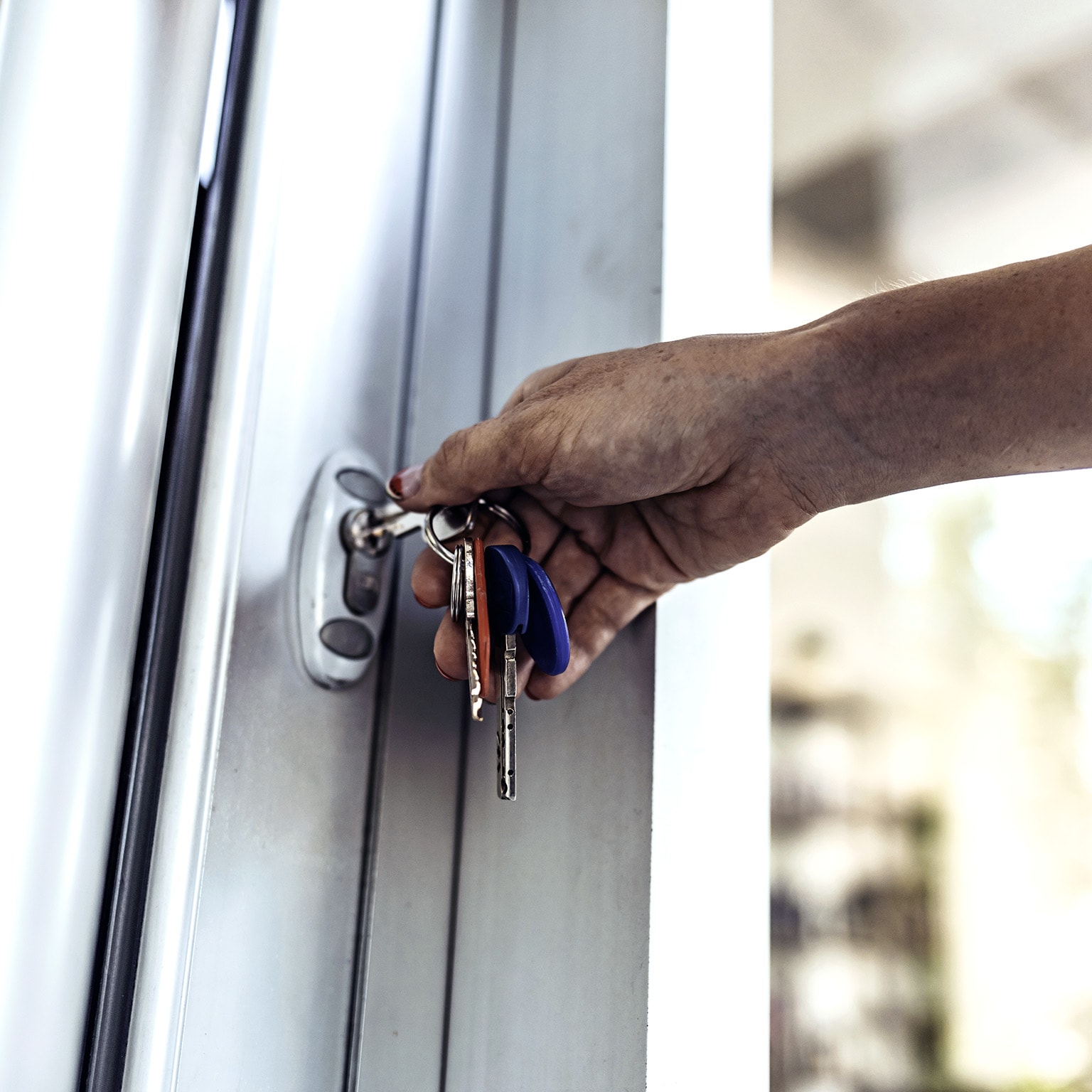Why Hiring a Home Inspector in Maryland is Essential Before You Buy
So, you've finally found your dream home in Maryland. The neighborhood is perfect, the schools are great, and that backyard is everything you've been hoping for. Before you sign on the dotted line and commit to the biggest purchase of your life, there's one crucial step you shouldn't skip: hiring a home inspector in Maryland to evaluate the property thoroughly.

So, you've finally found your dream home in Maryland. The neighborhood is perfect, the schools are great, and that backyard is everything you've been hoping for. Before you sign on the dotted line and commit to the biggest purchase of your life, there's one crucial step you shouldn't skip: hiring a home inspector in Maryland to evaluate the property thoroughly.
What a Home Inspection Covers
When caught up in the excitement of house hunting, it's easy to overlook potential issues lurking behind those freshly painted walls or underneath that beautiful deck. That's where a professional home inspector, a Maryland expert, comes in – they're trained to see what you might miss.
The Inspection Checklist
A thorough home inspection typically covers:
-
Foundation and structural components
-
Roof condition and estimated remaining life
-
Electrical systems and wiring
-
Plumbing systems, including water heaters
-
HVAC systems (heating, ventilation, and air conditioning)
-
Insulation and ventilation
-
Interior walls, ceilings, floors, and staircases
-
Windows and doors
-
Attic and visible insulation
-
Basement and crawl spaces
-
Exterior features, including siding, drainage, and grading
Maryland homes face unique challenges due to the state's climate and geography. From coastal properties dealing with humidity and potential flooding to older historic homes in Baltimore with aging infrastructure, a local inspector understands these regional concerns.
Beyond the Basics: Specialized Inspections
Sometimes standard inspections need to be supplemented with specialized assessments. In Maryland, these might include:
-
Radon testing (particularly important in certain Maryland counties)
-
Water quality testing for homes with wells
-
Mold inspections (especially in humid coastal areas)
-
Termite and wood-destroying insect inspections
-
Lead paint testing (crucial for homes built before 1978)
-
Asbestos testing in older properties
These additional inspections might cost extra, but they provide invaluable information about potential health hazards or expensive problems that could affect your decision to purchase.
Maryland's Unique Home Inspection Considerations
The Old Line State presents some specific challenges that make professional home inspections particularly important.
Climate Challenges
Maryland's location gives it a unique climate that can take a toll on homes:
-
Hot, humid summers can lead to mold and moisture problems
-
Freezing winters can damage pipes and foundations
-
Coastal areas face risks from hurricanes and flooding
-
Varying elevations across the state create different drainage concerns
An experienced home inspector, Maryland professional, knows exactly what to look for based on a property's specific location within the state.
Historical Properties
Maryland is rich with history, and many buyers are drawn to charming historic homes. However, these properties often come with:
-
Outdated electrical systems
-
Ancient plumbing that may contain lead
-
Structural issues that have developed over decades
-
Insufficient insulation by modern standards
-
Potential historical restrictions on renovations
A knowledgeable inspector can help you understand what you're getting into with an older property and identify which issues are merely cosmetic versus those that present safety or financial concerns.
Regional Construction Practices
Different regions of Maryland have different common construction practices based on when development boomed in those areas:
-
Pre-WWII Baltimore rowhouses with their unique construction features
-
Mid-century suburban developments around D.C. and Baltimore
-
Newer coastal constructions designed to withstand weather events
-
Rural properties that might have septic systems and wells
Understanding these regional differences helps inspectors spot potential issues specific to your property's age and location.
The Financial Implications of Skipping an Inspection
It might be tempting to waive a home inspection in a competitive market, but the potential financial consequences can be severe.
Short-Term Savings vs. Long-Term Costs
That $400-$600 you save by skipping an inspection could end up costing you tens of thousands in repairs that could have been negotiated with the seller or avoided altogether. Consider these common expensive repairs that inspections often uncover:
-
Roof replacements: $8,000-$20,000
-
Foundation repairs: $2,000-$15,000+
-
HVAC system replacement: $5,000-$10,000
-
Electrical system upgrades: $8,000-$15,000
-
Plumbing overhauls: $5,000-$20,000
-
Mold remediation: $2,000-$6,000
Negotiation Power
A detailed inspection report gives you powerful leverage in negotiations. You can:
-
Request repairs before closing
-
Ask for credits toward necessary work
-
Adjust your offer based on needed repairs
-
Walk away if problems are too extensive
-
Budget accurately for future maintenance
Without an inspection, you lose this leverage entirely and accept the property "as is"—for better or worse.
Insurance Implications
Some insurance companies may require recent inspection reports before issuing homeowners' policies, particularly for older homes. Without an inspection, you might face:
-
Higher insurance premiums
-
Difficulty obtaining coverage
-
Exclusions for pre-existing conditions
-
Denied claims for problems that existed before you purchased
How to Choose the Right Home Inspector in Maryland
Not all home inspectors are created equal. Here's how to find a qualified home inspector Maryland professional who will thoroughly evaluate your potential purchase:
Credentials and Licensing
Maryland requires home inspectors to be licensed through the Maryland Home Improvement Commission. When selecting an inspector:
-
Verify their Maryland license is current
-
Check for membership in professional organizations like InterNACHI (International Association of Certified Home Inspectors) or ASHI (American Society of Home Inspectors)
-
Ask about specialized certifications for radon, mold, etc.
-
Inquire about their experience with your specific type of property
Questions to Ask Before Hiring
Before committing to an inspector, ask:
-
How long have you been inspecting homes in Maryland?
-
What's included in your standard inspection?
-
Can I attend the inspection?
-
How long will the inspection take?
-
When will I receive the report?
-
What format will the report be in?
-
Do you carry errors and omissions insurance?
-
Do you offer any specialized inspections that might be relevant to this property?
Red Flags to Watch For
Be wary of inspectors who:
-
Offer significantly lower rates than others (quality inspections take time)
-
Won't allow you to attend the inspection
-
Are also contractors offering to fix what they find (conflict of interest)
-
Provide vague or unusually brief reports
-
Can't fit you in for several weeks (may indicate they're overbooked)
-
Don't carry proper insurance
Making the Most of Your Inspection Day
Once you've scheduled with a reputable inspector, here's how to maximize the value of your inspection:
Be Present
If possible, attend the inspection. Reading a report is helpful, but nothing beats seeing issues firsthand and asking questions in real time.
Ask Questions
Don't be shy about asking your inspector to explain their findings. A good inspector welcomes questions and will help you understand the severity of issues they discover.
Take Notes and Photos
Document what the inspector points out so you can reference it later when making decisions or planning future maintenance.
Focus on Deal-Breakers
Pay special attention to major issues like structural problems, water damage, and safety concerns that might affect your decision to purchase.
Conclusion
When making one of life's biggest investments, the relatively small cost of hiring a professional home inspector in Maryland is money well spent. Beyond identifying potential problems, an inspection gives you peace of mind about your purchase decision and helps you plan for future maintenance and improvements.
Remember that even new construction homes benefit from professional inspection – just because a home is newly built doesn't mean it was built correctly or to code. Whether you're buying your first home or your fifth, in Baltimore's historic neighborhoods or Ocean City's beachfront properties, a thorough inspection is your best protection against unexpected and costly surprises down the road.









































































































![Building A Digital PR Strategy: 10 Essential Steps for Beginners [With Examples]](https://buzzsumo.com/wp-content/uploads/2023/09/Building-A-Digital-PR-Strategy-10-Essential-Steps-for-Beginners-With-Examples-bblog-masthead.jpg)

















































